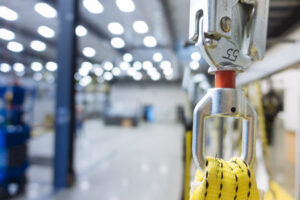
A modular process plant is an industrial plant that is designed to be built in sections, or modules, and then assembled on-site. This type of plant is used for a variety of applications, including chemical processing, oil and gas production, water treatment,enhanced oil recovery and food processing. The modular design allows for quick installation and can be customized to meet specific needs.
Advantages of Modular Process Plants
Modular process plants offer many advantages over traditional plants. One of the main advantages is that they are much faster to install than traditional plants. This means that they can be up and running in a fraction of the time it would take to build a traditional plant from scratch. Additionally, modular process plants are often more cost-effective than traditional plants due to their shorter construction time and lower material costs. Furthermore, they are easier to maintain since all components are easily accessible and replaceable. Finally, modular process plants are also more flexible than traditional plants since they can be easily reconfigured or expanded as needed.International engineering companies like ProProcessproduce plants just like this to be designed, engineered, manufactured and shipped around the world.
Disadvantages of Modular Process Plants
Although there are many advantages to using modular process plants, there are also some potential drawbacks that should be considered before making the decision to use them. One potential disadvantage is that the quality of the components used in the modules may not be as high as those used in a traditional plant since they may not have been tested for long-term performance or durability. Additionally, some components may not be compatible with other components which could lead to problems down the line if changes need to be made or repairs need to be done. Finally, modular process plants may require additional engineering work compared to traditional plants due to their complexity and customizability.ProProcess is ISO accredited and use the best products to meet international manufacturing standards. They also offer OEM procurement services should anything go wrong.
How are modular process plants built in containers?
Modular process plants are built in containers using a systematic approach that allows for efficient fabrication, transportation, and installation. Here’s a general overview of how modular process plants are constructed in containers:
- Design and Engineering: The process starts with the design and engineering phase, where the layout, specifications, and requirements of the modular process plant are determined. This includes considering the necessary equipment, piping, electrical systems, and automation components.
- Container Selection: Containers of suitable sizes and dimensions are chosen based on the specific needs of the process plant. Standard ISO containers, such as 20-foot or 40-foot shipping containers, are commonly used due to their widespread availability and compatibility.
- Fabrication and Assembly: The fabrication of the modular process plant components takes place in a controlled workshop environment. This includes constructing the structural framework, installing equipment, integrating piping systems, electrical wiring, instrumentation, and any necessary automation components. The modules are assembled and tested to ensure proper functionality.
- Container Integration: The fabricated modules are then carefully transported to the selected containers. The modules are positioned and securely fitted inside the containers, utilizing mechanisms such as skids or mounting brackets to ensure stability during transportation and installation.
- Interconnections and Utility Integration: Within the containers, interconnections between the modules are established. This includes connecting the piping systems, electrical wiring, and instrumentation to create a cohesive and fully functional process plant. Utility connections such as water, gas, or electricity are also integrated into the containerized system.
- Quality Assurance and Testing: Prior to transportation, comprehensive quality assurance checks and testing procedures are conducted to verify the performance and integrity of the modular process plant. This ensures that the plant meets the required standards and specifications.
- Transportation and Installation: Once the containerized modular process plant is ready, it is transported to the installation site using trucks, trains, or ships, depending on the distance. The containers are then carefully positioned and connected at the designated location, ensuring proper alignment and interconnections with external utilities and infrastructure.
- Commissioning and Start-up: After installation, the modular process plant undergoes commissioning and start-up procedures. This involves checking and calibrating all systems, conducting functional tests, and gradually initiating operations to ensure smooth and efficient performance.
Modular process plants built in containers offer advantages such as reduced construction time, improved quality control, ease of transportation, and flexibility in deployment. They provide efficient and scalable solutions for various industries, including mining, oil and gas, chemical processing, and water treatment.
Conclusion
Modular process plants offer many advantages over traditional plants including faster installation times, lower costs, easier maintenance, and greater flexibility. However, it’s important to consider potential drawbacks such as lower component quality and additional engineering work before making the decision to use them. Ultimately though, modular process plants can provide an efficient solution for many industrial applications if properly designed and implemented.







